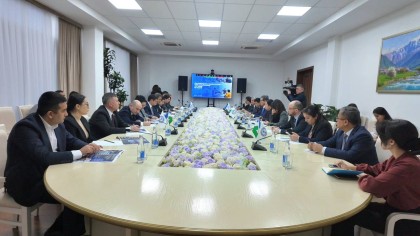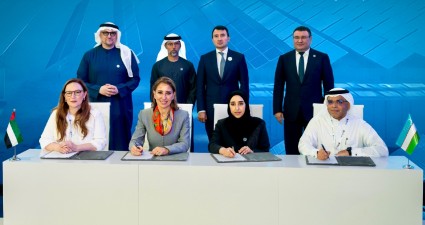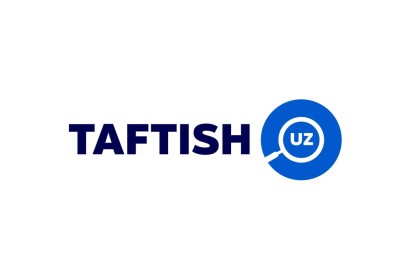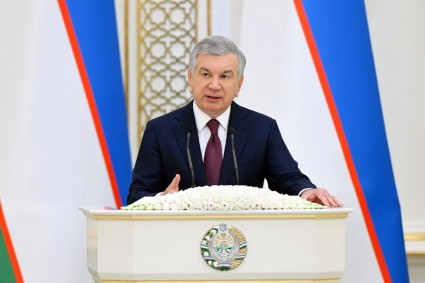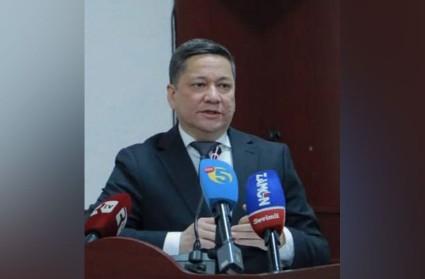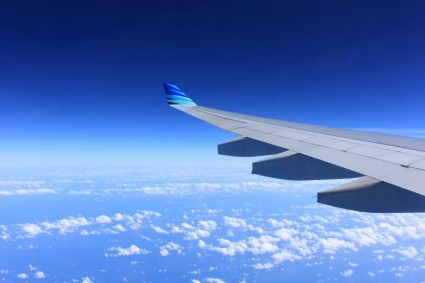A number of regulation changes and other novelties will take effect in Uzbekistan on July 1.
Pensions and benefits will rise
From July 1, old-age pensions, minimum disability pension, and the basic pension calculation unit will rise by 10%. Disability pensions for incomplete work experience, benefits for senior individuals without the minimum work experience, survivor's pensions, and other social payments will also rise.
- Minimum old-age pension has been set at 918 thousand soums (currently 834 thousand soums);
- Minimum disability pension is 1 million 12 thousand soums (920 thousand);
- Basic pension calculation unit is 471 thousand soums per month (427 thousand).
Size of monthly child benefits in low-income families will be:
- 360 thousand soums — for a child under 3 years old;
- 275 thousand soums — from 3 to 18 years old;
- 165 thousand soums — for the second child;
- 110 thousand soums — for the third and subsequent children.
Financial aid to low-income families — 420 thousand soums per month.
Pensions for people with disabilities to be assigned automatically
From July 1, people with disabilities (I or II groups) will no longer need to apply for pensions and compensation — payments will be assigned automatically. In addition, an individual will be able to refuse a pension assigned in a proactive form.
Compensations will also be automatically paid to individuals with group I disability due to vision, persons who have completed military service at nuclear testing grounds and other radiation and nuclear facilities.
Businesses will get partial compensation for the costs of ziplines and rope parks
From July 1, 2025 to January 1, 2027, businesses in Uzbekistan will be able to get subsidies of up to 100 million soums for ziplines and rope parks (rope parks) in the mountains and deserts:
- at least 200-meter long zipline — up to 100 million soums;
- a rope park with an area of вАЛвАЛ150 sqm — up to 80 million soums.
Subsidies will be provided only after the facilities are put into operation.
Children content producers will get tax breaks
From July 1 to January 1, 2030, companies that generate at least 80% of their annual income from creating content for children shall be exempt from paying income tax and pay a social tax at a rate of 1%. In addition, the rates of value added tax paid when creating children's content will be fully refunded from the state budget after filing tax reports.
A number of companies will connect to payment services
From July 1, all budget-financed organizations providing services to the public, as well as legal entities selling gas and oil products and leasing property, shall be required to connect to e-payment systems.
Refusal to accept e-payments will be equivalent to refusal to pay through point of sale and will entail liability under the law.
11 governmental services will be handed over to the private sector
From July 1, 11 governmental services will be handed over to the private sector, including accreditation of medical organizations, verification of meters and eco-certification of vehicles (list).
Individuals will be compensated for part of the costs of installing solar panels and pumps
From July 1, the National Energy Efficiency Agency will begin to provide subsidies to cover part of the public's expenses for energy audits of residential buildings, as well as the installation of energy-efficient equipment.
In particular, subsidies will cover up to 20% of the cost of solar panels and solar collectors (water heaters), as well as up to 40% of the cost of heat pumps (air, water and geothermal), but not more than an amount equivalent to 50 times the base calculation value (18.75 million soums).
The subsidies shall apply exclusively to equipment purchased through the Energy Efficiency Platform. Its launch is scheduled for September 1, 2025.
The escrow account system will be launched in shared construction
From July 1, 2025 to December 31, 2025, the funds of equity holders in construction will be attracted both through escrow accounts and through the current mechanism of shared participation based on direct attraction.
However, from January 1, 2026, the only way to finance construction will be the escrow account system.
The project is being launched in cooperation with the Russian state-owned company dom.rf. The Minister of Construction and Housing and Public Utilities previously announced that it will ensure the protection of individuals' funds and eliminate fraudulent schemes when developers collect money but do not build.
The Single Life Cycle principle is being introduced in housing construction
From July 1, the Single Life Cycle principle will be introduced. The new procedure is aimed at protecting the rights of equity holders in the process of constructing objects based on shared participation.
Under the new mechanism, developers will be able to attract funds from equity holders only through notarized equity participation agreements, which are subject to state registration with cadastral authorities.
Equity holders will be able to check developers via an e-platform
It is planned to launch an e-housing construction platform from July 1. Buyers will be able to check the developer's rating, portfolio, compliance with the deadlines for the delivery of real estate and other information on the platform.
Developers who attract funds from equity holders will be required to post on the platform:
- the exact address of the real estate under construction;
- the number of floors, entrances, apartments and non-residential premises;
- area and adjacent territory;
- information about the financing commercial bank;
- residential and non-residential premises actually sold;
- design and estimate documentation and a positive expert opinion;
- date of commencement of construction and date of commissioning;
- progress of construction and other information.
Digital versions of personal documents will be officially recognized
From July 1, digital versions of a number of documents, including a passport and driver's license, will be recognized equally as hard versions. They will be available in the SPIGS and Social Card applications. They can be presented to government agencies, banks and other organizations, as well as at airports and train stations.
Foreign marketplaces and streaming services will be required to register in Uzbekistan
From July 1, registration in Uzbekistan will become mandatory for marketplace operators, order aggregators and streaming services. All operators and sellers on platforms, including the self-employed, will be required to conduct payments within the framework of e-commerce through separate bank accounts.
Only legal entities-residents of Uzbekistan will be allowed to become e-commerce operators (e-trading platforms/marketplaces, order aggregators and digital streaming services).
Individuals will be compensated for interest on "green" loans
From July 1, Uzbekistan will begin to provide loans to finance projects of energy service companies (ESCOs) at the expense of resources placed by the National Energy Efficiency Agency in banks.
The program will cover both the public and energy service companies, and also provides for soft terms for lending for "green repairs" of housing.
For loans provided to the public, compensation for part of the interest rate will be provided at the expense of the agency. Compensation will cover the excess of the rate above 19%, but not more than 4 percentage points.
Government buildings in 15 cities and districts will be handed over to businesses
From July 1, all government agencies in 15 cities and districts will begin to be handed over to one multi-story building in the centers of the districts. The exception is law enforcement agencies, utilities and medical institutions.
We are talking about Kungrad, Chimbay, Asaka, Gijduvan, Galliaral, Yakkabag, Khatyrchi, Chartak, Bulungur, Syrdarya, Denau, Kuva, Shavat districts and the cities of Yangiyul and Margilan. This list may be amended by the Cabinet of Ministers MoM based on the proposal of the Ministry of Economy and Finance.
Empty state-owned facilities with an area of вАЛвАЛup to 10 thousand square meters will be handed over for free use for a period of 5 years to businesses engaged in the production of high-tech products.
Small and medium businesses will be protected from new requirements
From July 1, 2025 to January 1, 2028, a ban on the adoption of new regulatory legal acts imposing new obligations on SMEs will be in effect.
The principle of "New Rules From Single Date" will be applied to documents establishing new or strengthening existing regulatory instruments. That is, they will take effect only twice a year - on January 1 or July 1
Export duties in force for 86 types of goods
From July 1, export duties will be in force for 86 types of goods, including gas, fertilizers, meat, rice, waste and scrap of non-ferrous and ferrous metals, and their rates have been approved.
Also, export fees will be replaced by export duties for certain goods (yarn - 2%, but not less than $50 per ton with further growth to 5%, but not less than $125, raw silk - 1%, but not less than $500 per ton with further growth, leather, etc.).
Compulsory Motor Third Party Liability Insurance (CMTPLI) shall become mandatory when crossing the border
From July 1, CMTPLI moving across the border will be introduced. In this case:
The insurance policy is issued through the information systems of customs authorities directly upon entry to the customs post;
Customs clearance of vehicles registered in foreign countries shall be only with a valid civil liability insurance policy.
VAT exemption for public transport shall be csrapped canceled
From July 1, the VAT exemption for the turnover of passenger transportation services at uniform rates is canceled.
The benefit applied to transportation in urban public transport (except taxis, including route taxis) and commuter trains.
Sole entrepreneurs will be allowed to produce furniture at home
Since July 1, sole entrepreneurs working from home shall be granted the right to engage in furniture manufacturing activities.
Also, until June 1, 2027, 50% of the costs of implementing information systems for the digitalization of production processes (such as CRM, ERP, PLM) at furniture manufacturing enterprises will be covered, but in a part not exceeding five thousand dollars.
Only official importers and their dealers will be able to sell imported drugs
From July 1, the sale of drugs imported to Uzbekistan to entrepreneurs engaged in their wholesale and retail trade will be carried out only by the importing organization itself or its official dealers - on the basis of an electronic invoice.
That is, only companies that imported the products themselves, or their official dealers, will be able to sell imported drugs. Independent intermediaries and unauthorized organizations will not be able to legally sell such drugs.
Also, wholesale sales of drugs with digital marking will be allowed only in non-cash form - through bank accounts.
Physicians will be given bonuses for treating severe cases
From July 1, all state medical institutions of the country will introduce a system of paying bonuses to doctors who effectively carry out treatment measures and high-risk operations that require special skills, in the amount of 25% to 100% of the monthly salary, depending on the severity of the disease and the complexity of its treatment.


